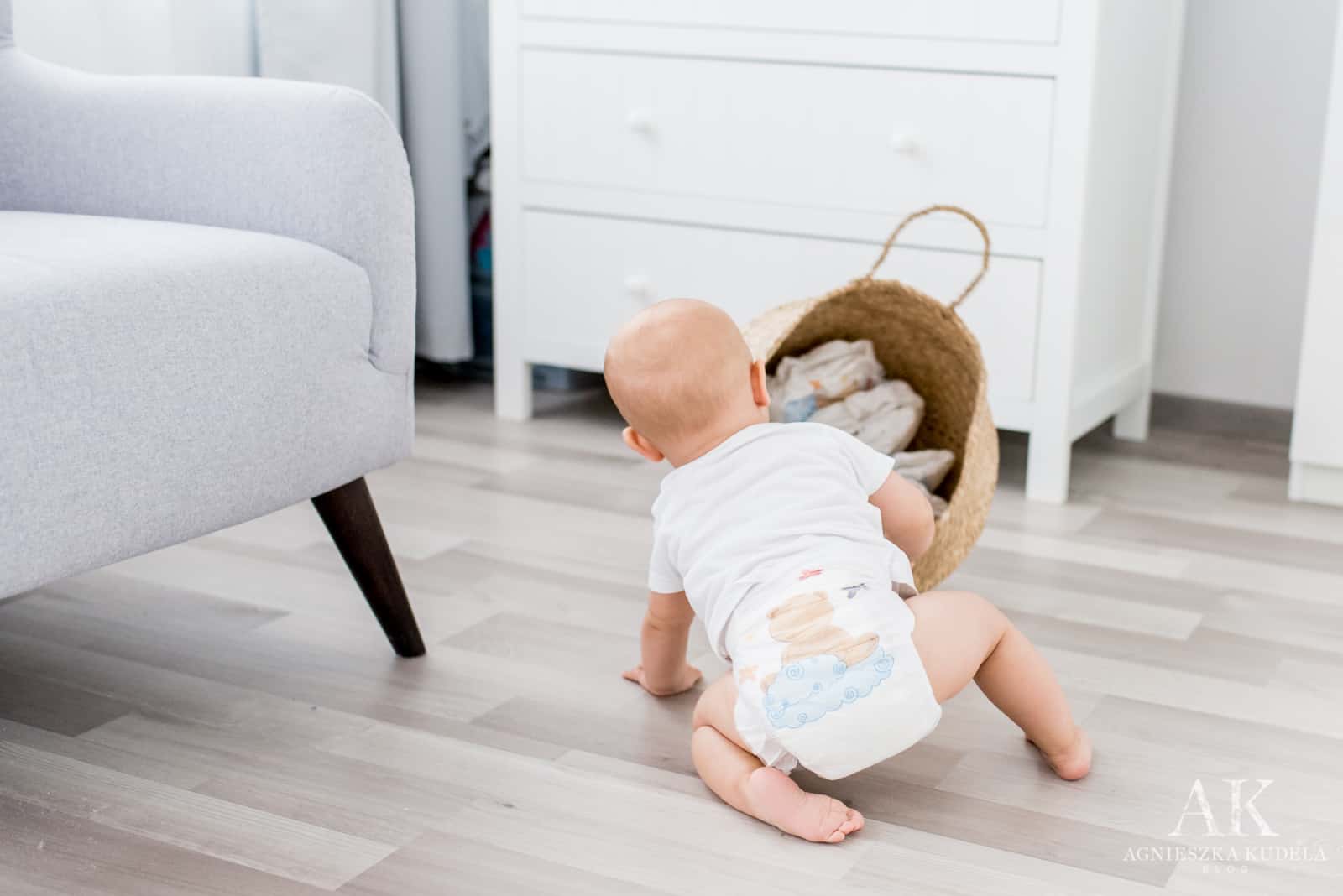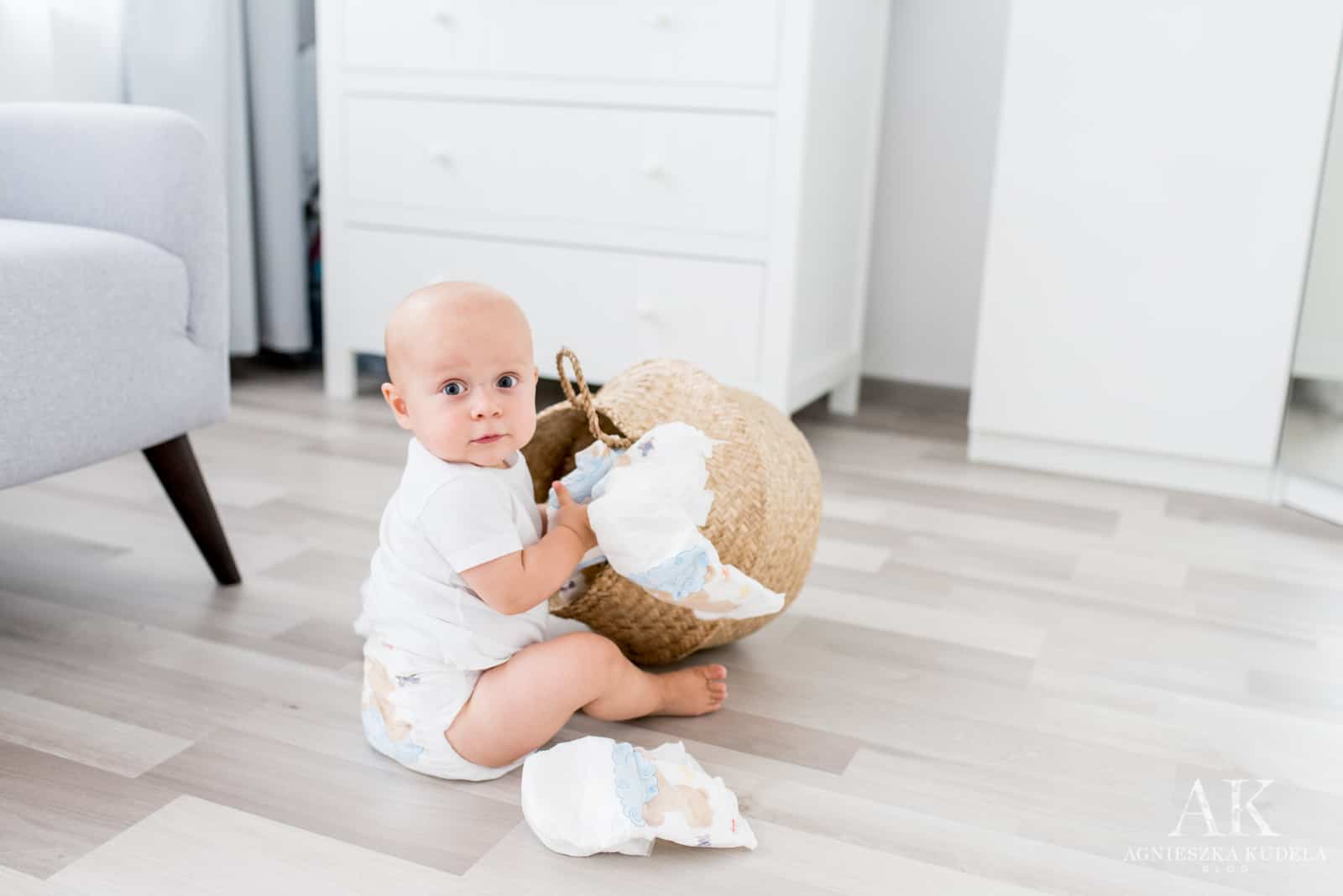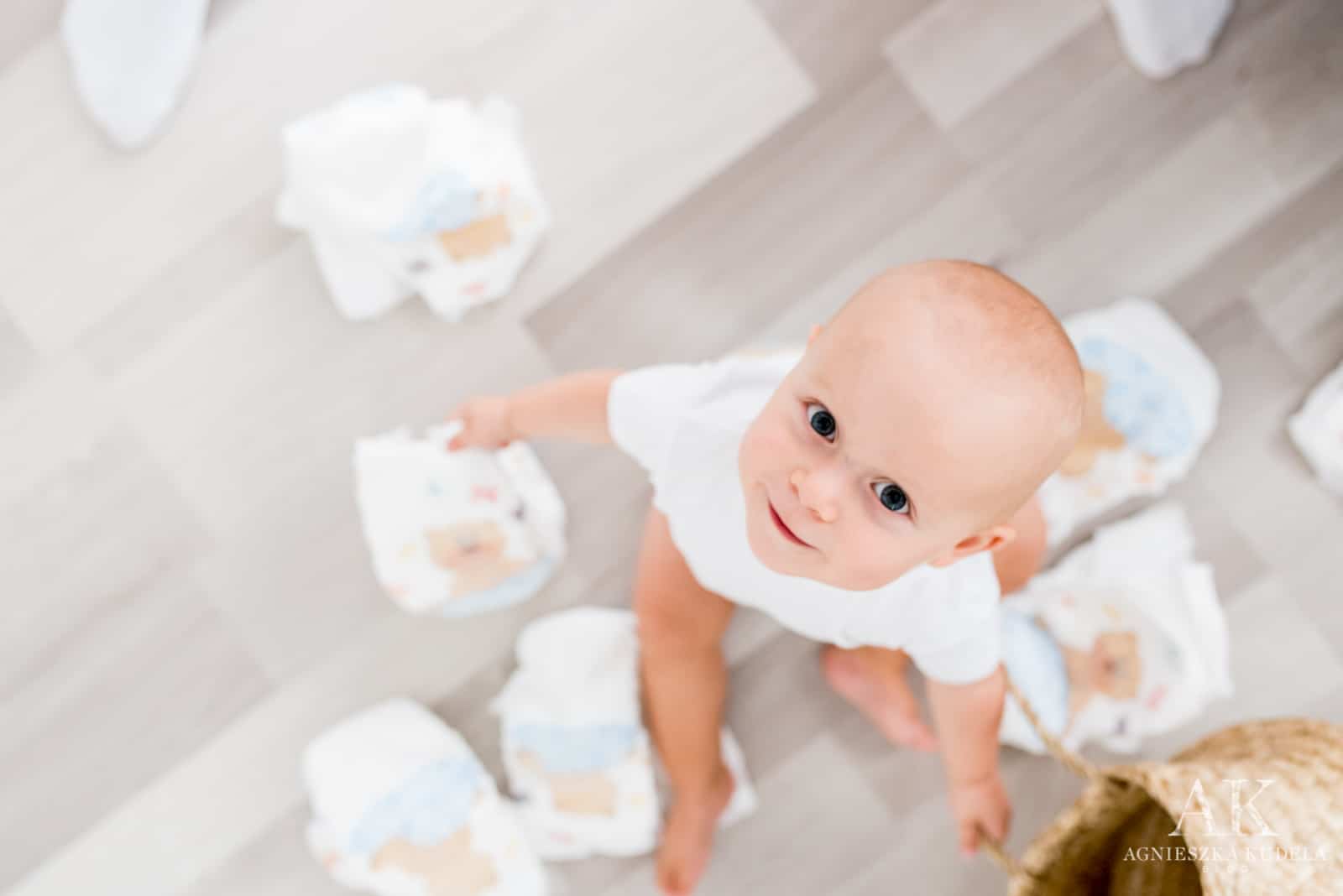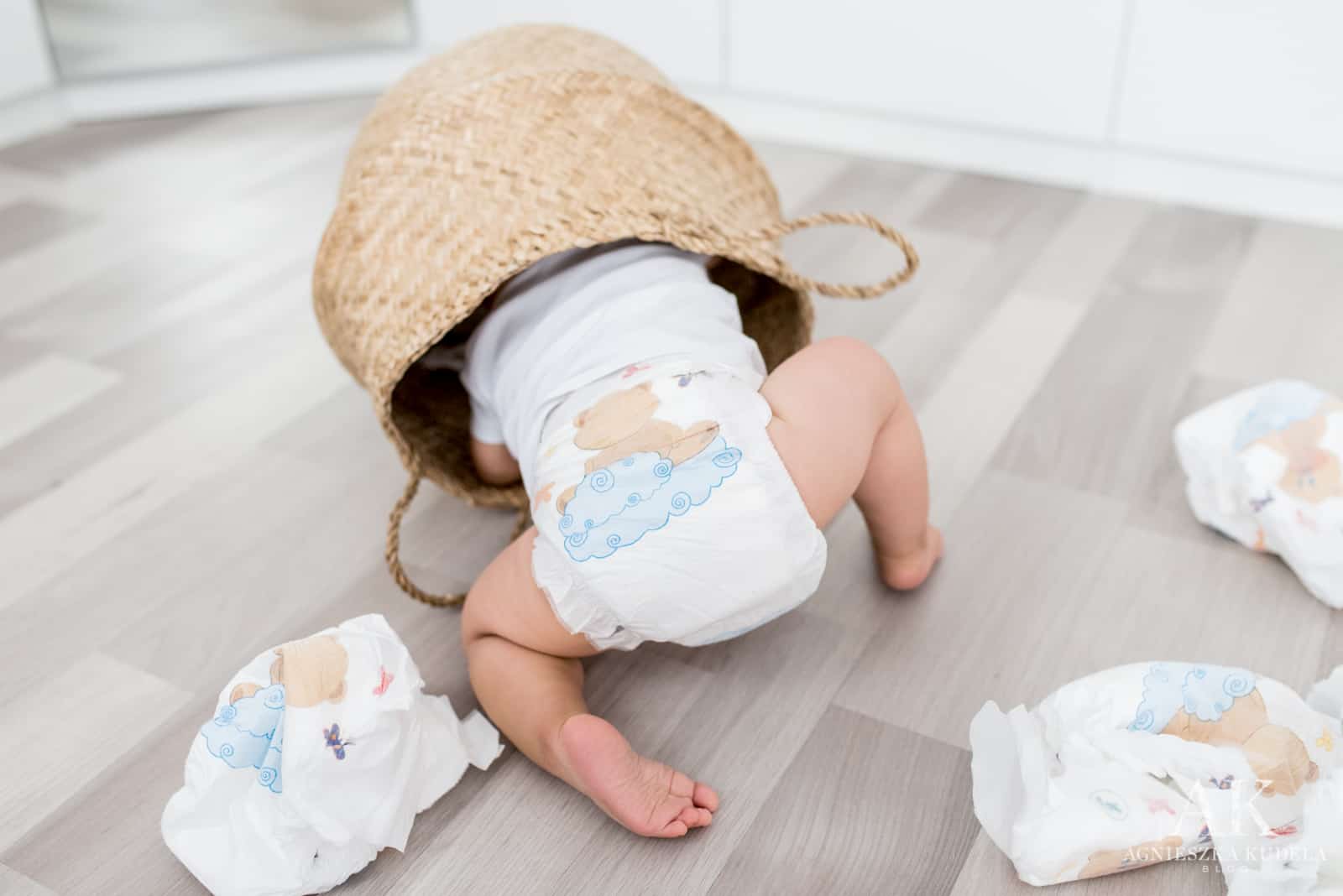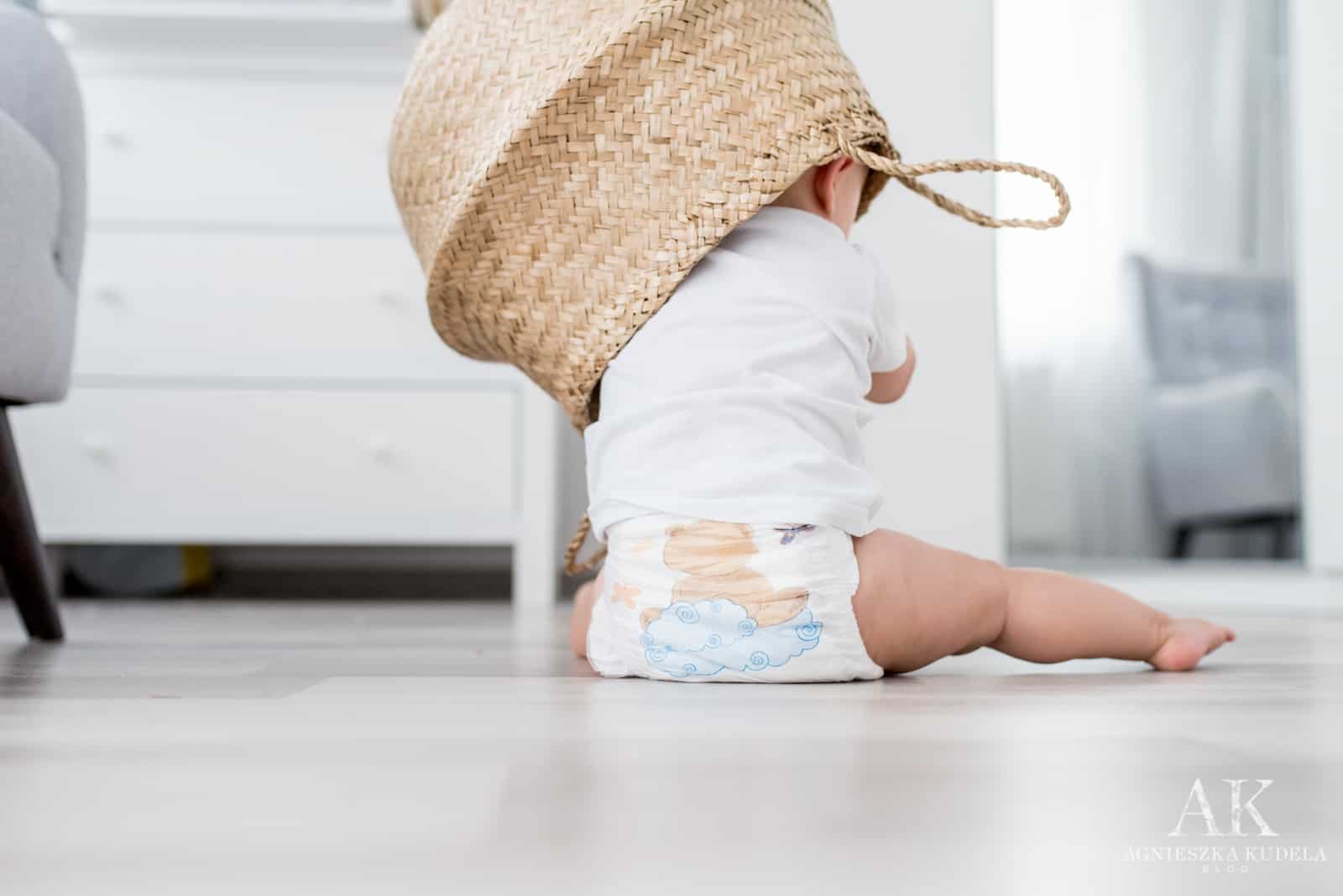Ecological diapers – how to choose the best and is it even worth it?
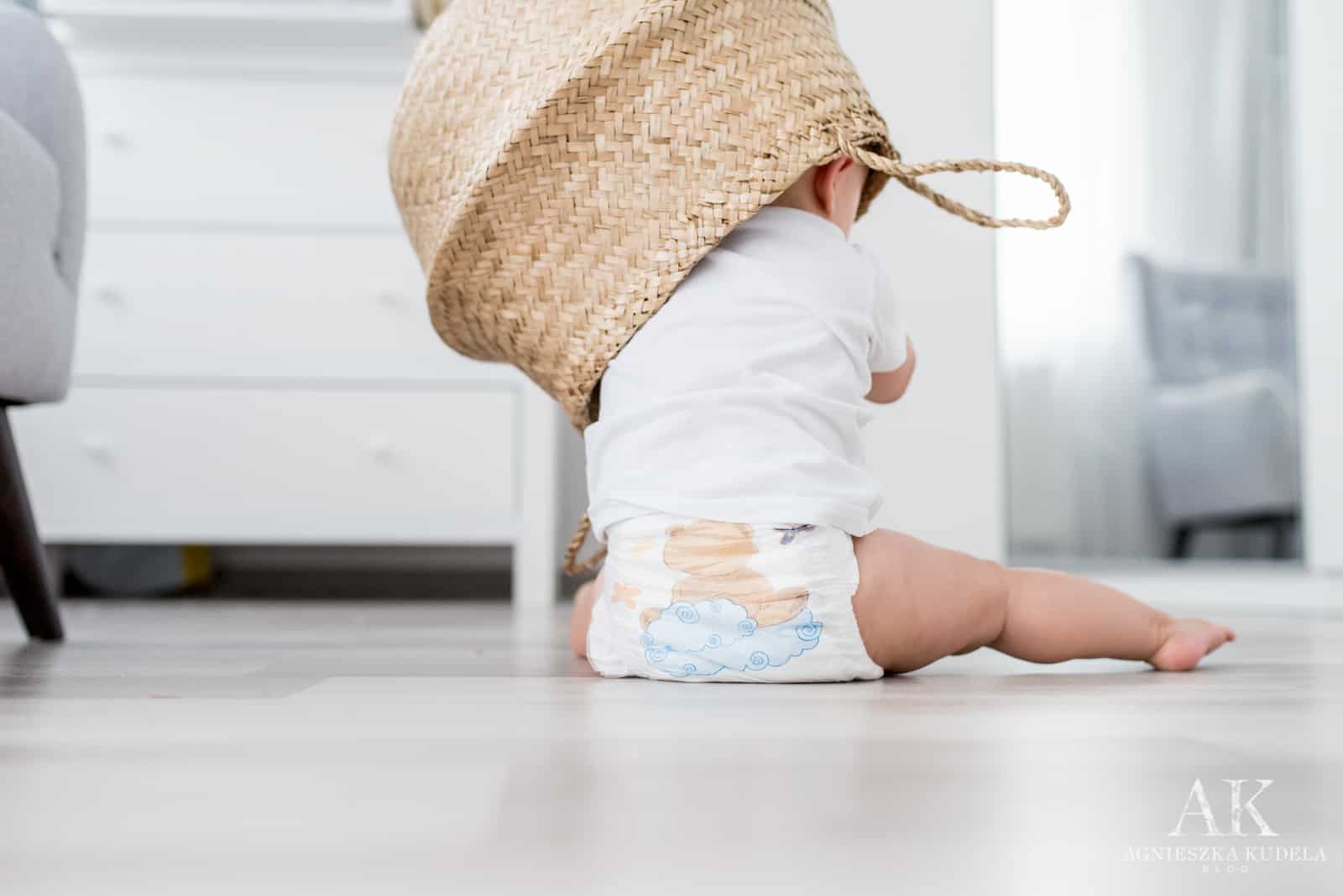
The environmentally friendly diapers are getting louder and louder recently, as well as about the harmfulness of ordinary disposable diapers available on the market. How is it actually? Is the difference really so felt?
At the moment, on our market you can find at least a dozen diaper brands, and each of them boasts that their products are “the best” and “the only one”. I have already tested all of them, including the ecological ones. How are they different?
What can be in disposable diapers?
Remember that most babies have contact with a disposable diaper almost 24 hours a day – it is worth paying attention to what is in constant contact not only with the skin, but also with our baby’s mucous membranes. What does this mean in practice? Since we care about the powder or liquid in which we wash children’s clothes, the more we should be interested in what the skin and mucous membranes of our child come into contact with, because any chemical substance can penetrate through them into his body. You may be surprised how many of them are in ordinary disposable diapers …
dioxins – most of the disposable diapers available on the market are bleached with chlorine, which leaves traces of dioxins on the diaper. The World Health Organization cites dioxins as “persistent environmental pollutants” that can cause a range of more or less serious health problems, including even developmental delays, immune damage, hormonal imbalances and certain cancers.
Volatile organic compounds (VOCs) – many disposable diapers release VOCs such as ethylbenzene, toluene and xylene. According to the EPA (United States Environmental Protection Agency), some VOCs can cause cancer and others – neurological problems, eye irritation and decreased immunity.
Sodium polyacrylate (sodium polyacrylate, SAP) – you probably know these moisture-absorbing particles in disposable diapers – are made of sodium polyacrylate. When used in tampons, SAP was responsible for cases of toxic shock syndrome in many women and girls. SAP also irritates the skin and can cause infections.
Alternatives to regular disposable diapers
1. Cloth diapers – that is, the diapers from which we grew up. Safe for both the child and the environment, and in addition they have many uses – from a blanket to cuddle at bedtime, through a diaper, to … a cloth for cleaning the floor – of course only if it is too damaged to serve our child. Wrapped in a traditional way, or …
2. Waterproof diapers / pockets / swaddling diapers, fastened with Velcro or snaps – you just need to buy a few and simply replace the absorbent pads, e.g. from the traditional cotton diaper mentioned above or from bamboo.
3. Organic diapers – in my video with a layette to the hospital, I showed you the first ecological diapers that I tested – I got them as a gift from a Friend, she brought them to me from the States – it’s the Honest brand, unfortunately not available in Poland. Then I started looking for their counterpart in Poland.
Which disposable diapers to choose?
Certainly such with the shortest composition – if it is provided, because, unfortunately, the manufacturer often does not put such information on the packaging.
Secondly, disposable diapers do not have to be soaked in fragrances or extracts – we can never be sure what effect they may have on our baby’s delicate skin (and also the respiratory tract). They can cause a rash or dizziness. And the smell of the contents of the diaper – whatever it is – we will withstand. I remember when I was pregnant when I bought the first, so much advertised and popular, simply “best” disposable diapers and put them on the shelves of the changing table – the smell was so intense that I couldn’t stay in the baby’s room for a few days while pregnant.
Thirdly, it is extremely important for disposable diapers they were not bleached with chlorine. He doesn’t need any chemicals that might come into contact with the baby’s skin. For the same reason, it may not be worth choosing super extra absorbent nappies – the less moisture absorbing agent they contain (the above-mentioned sodium polyacrylate), the better.
What diapers for a newborn baby? And every child?
We already know that disposable diapers they should not contain harmful substances. And what should they be made of?
Organic diapers should be made of breathable plasticand yet ensure rapid absorption of moisture, so that your child is not at risk of getting burned.
Which brand available on the Polish market meets these conditions?
Organic disposable diapers Bambo Nature I found it ecological because of natural composition – this wood pulp – thanks to it, they do not harm and also reduce the symptoms of dermatitis in a child. They also do not contain allergens or perfumes – because what for? also they are bleached not chlorine, but hydrogen peroxide – another plus!
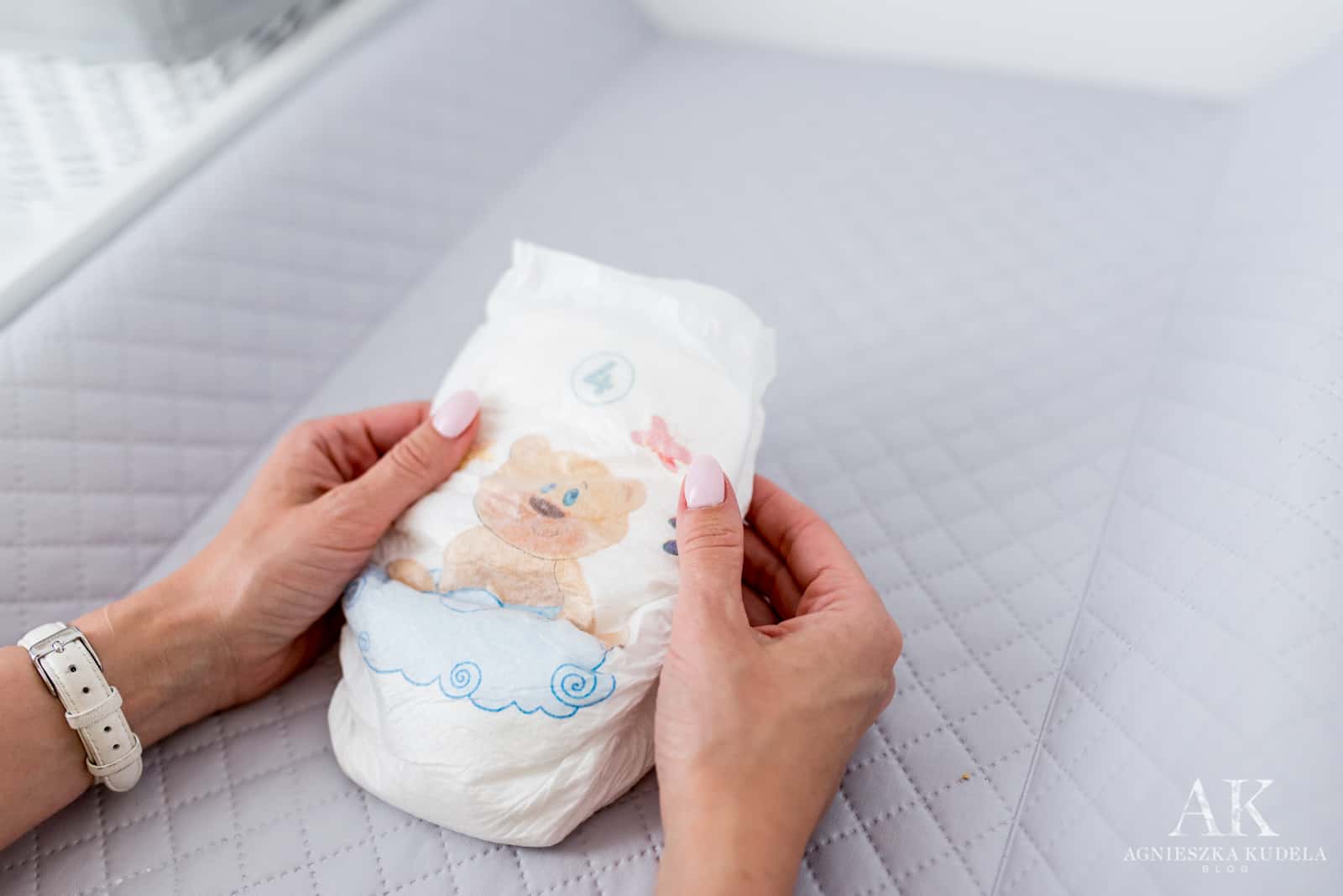
Ecological… are you sure?
Certainly during walks in the woods or somewhere along the road you met with an unpleasant view of a worn diaper. Did you know that the decomposition of such a regular disposable diaper can take up to 1000 years and cause greenhouse gas emissions? So I consciously buy environmentally friendly diapers because they are not plastic, a made of wood pulp. Additionally, they can boast the “Nordic Ecolabel” certificate and the “EU Flower” mark. Ecological diapers – those that are not made of foil or plastic – have another huge plus: they don’t overheat the little boys’ testicles, thanks to which we prevent future fertility problems already at the neonatal and infant stage!
And you know of which ordinary diapers are usually made? Made of plastic, the same from which … flowerpots are made! Production waste from pots (one such factory is located near my house) is turned into diapers! P.
Bambo Nature diapers do not have an intense, chemical smell, they do not cause chafing like many ordinary nappies (provided that the Toddler himself does not suffer from acid poop, which often causes chafing) and they are noticeably thinner, so also more comfortable for the baby. it’s absorbent. However, I have the awareness in my head that they are not harmful to my child’s skin – and this is the most important thing, as well as to the world in which he will live.
They also have organic diapers one minus – they are more expensive than regular ones, they cost from 83 groszy apiece (depending on the size), which in my opinion may be the only barrier to buying them. You can say that I am overpaying, but I think I am investing – in the health of the Child and the world. I buy them here.
PS I also have for you great idea for one of the coolest games for a baby and in the spirit of Montessori, for which you only need a basket and diapers. Maksymilian loves it.
